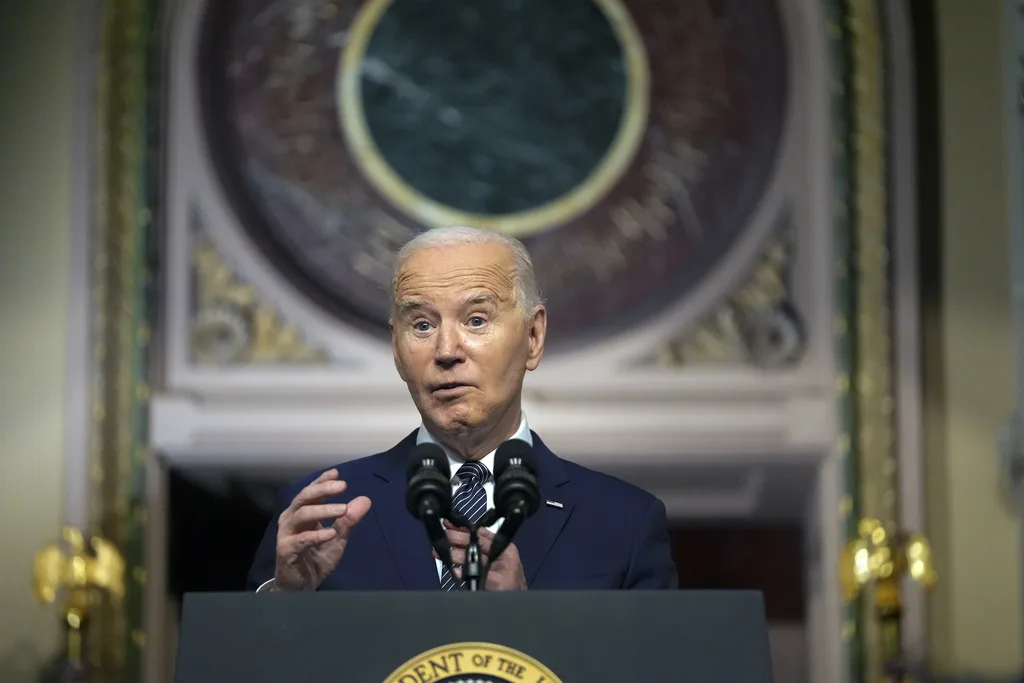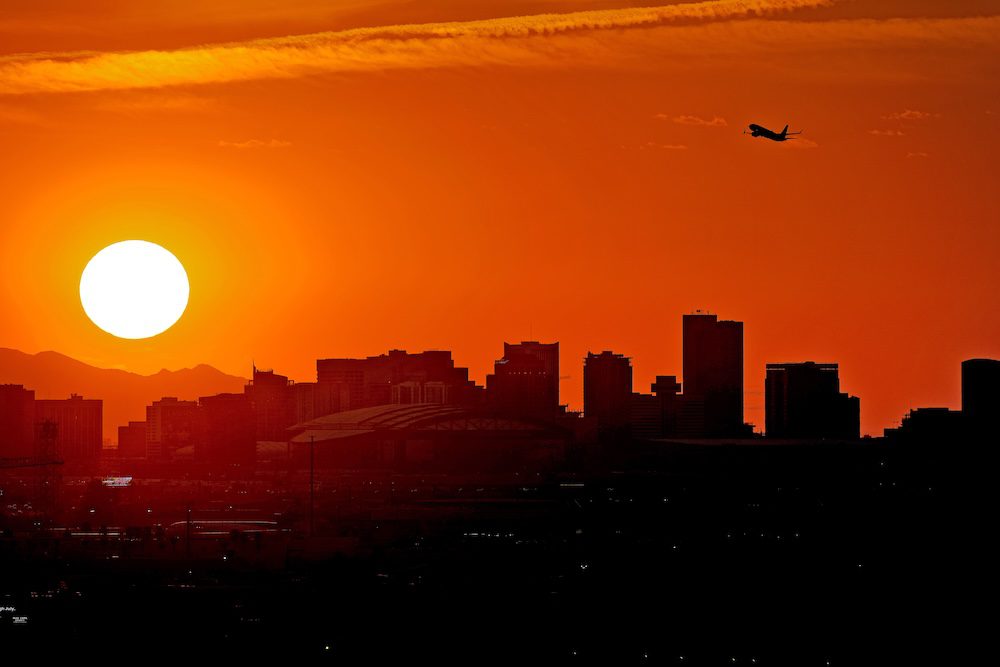
(AP Photo/Mark Schiefelbein)
During an appearance in Charlotte, North Carolina on Thursday, Vice President Kamala Harris and Environmental Protection Agency (EPA) Administrator Michael Regan announced $20 billion in clean energy grants to help communities across the country combat climate change while creating new clean energy jobs.
Harris and Regan unveiled eight grantees selected to receive portions of the award from the EPA’s Greenhouse Gas Reduction Fund, which aims to empower community leaders and organizations nationwide with funding to combat climate change in their own backyards.
Support for the Greenhouse Gas Reduction Fund came directly from a $27 billion investment under President Joe Biden’s Inflation Reduction Act, which outlined goals to reduce climate pollution, cut down on energy costs, boost air quality, and create high-quality clean energy jobs in the public and private sector.
“The selectees announced today will deliver transformational investments for American communities, businesses, and families and unleash tens of thousands of clean technology projects like putting solar on small businesses, electrifying affordable housing, providing EV loans for young families, and countless others,” Regan said in a statement. “That translates to good-paying jobs, energy bill savings, and cleaner air, all while delivering on President Biden’s historic agenda to combat climate change.”
The eight grantees will use funding to power a variety of initiatives within the clean energy and climate sphere. Centering on everything from zero-emission transportation projects to retrofitting homes and small businesses with climate-friendly equipment, these initiatives are projected to reduce carbon pollution by a whopping 40 million metric tons over the next seven years, rendering the EPA’s grants unprecedented.
“Game-changing” energy benefits for underserved communities
Supporting underserved communities is at the heart of the Greenhouse Gas Reduction Fund grant program, as the Biden administration’s Justice40 Initiative pledged to allot at least 40% of all clean energy and climate investments toward marginalized communities, many of which face disproportionately high rates of pollution and other dangerous climate outcomes.
The eight grantees announced Thursday have exceeded this pledge, with approximately 70% of the funds granted—that’s over $14 billion of the $20 billion total—expected to benefit historically disadvantaged communities.
Regional EPA Administrator Lisa F. Garcia calls the grants “game-changing.”
“They advance clean energy financing and solutions which will directly benefit communities and organizations that were previously left out of the renewable energy transition,” she said in a press release.
Grant recipients are broken down into two groups under two separate but complementary branches of the Greenhouse Gas Reduction Fund.
Under the National Clean Investment Fund (NCIF), three grantees will split $14 billion in funding to advance access to clean technology projects across the nation by working with community leaders, citizens, and private organizations.
The nonprofit Climate United Fund will use its $7 billion award to address clean energy needs across underserved sectors like community facilities, small local farms, and schools in conjunction with two other nonprofits: the Self-Help Ventures Fund and Community Preservation Corporation.
With a $5 billion award under the NCIF, the nonprofit Coalition for Green Capital will increase investment in so-called “green banks,” or financial institutions committed to encouraging clean energy growth nationwide. At least half of the Coalition’s investments will benefit disadvantaged communities.
Nonprofit coalition Power Forward Communities will use its $2 billion NCIF grant to address climate solutions in the affordable housing space. The coalition includes organizations like Habitat for Humanity and the United Way, who are committed to improving access to climate-friendly low-income housing for families across the country.
Promoting climate-conscious lending through clean energy “hubs”
The second group of grantees will split $6 billion in investments through the Clean Communities Investment Accelerator (CCIA) branch of the Greenhouse Gas Reduction Fund. The CCIA centers on creating “hubs” to promote clean transportation, infrastructure, and climate-conscious technical support through smaller-scale projects.
Nonprofits Opportunity Finance Network, Inclusiv, and Justice Climate Fund—receiving $2.3 billion, $1.9 billion, and $940 million, respectively—will all work to provide clean energy-focused funding to their communities of lenders.
The Native CDFI Network will use its $400 million award under CCIA to address clean energy funding challenges across its network of Native communities in 27 states. Similarly, Appalachian Community Capital will employ its $500 million award to work with lenders in rural America, including projects in Tribal communities and within the coal and energy sectors.
“When President Biden and I made the largest investment in our nation’s history to address the climate crisis and to build a clean energy economy, we made sure that every community would be able to participate and benefit,” Harris said in a statement. “The grantees announced today will help ensure that families, small businesses, and community leaders have access to the capital they need to make climate and clean energy projects a reality in their neighborhoods.”
Republicans push back on clean energy initiatives
The Greenhouse Gas Reduction Fund builds on Biden’s efforts to address climate change and supports his goal of slashing US greenhouse gas emissions in half by 2030.
Republicans in Congress have repeatedly pushed back on climate-forward initiatives, even passing H.R. 1023 last month in a direct effort to slash funding for the Greenhouse Gas Reduction Fund. Biden has vowed to veto the resolution.

Arizona bill ignores climate change, blames poor air quality on other countries
When it comes to HCM 2010, a piece of legislation that attempts to pass the blame for Arizona’s emission pollution levels, the name of the game is...

Why climate activists oppose Arizona Sen. Frank Carroll’s proposal to confront poor air quality
A proposed state law that its sponsor says could improve Arizona’s air quality has met an unlikely foe: climate activists. Senate Bill 1128 would...

Earth records hottest year ever in 2024 and the jump was so big it breached a key threshold
Earth recorded its hottest year ever in 2024, with such a big jump that the planet temporarily passed a major climate threshold, several weather...

Kris Mayes sues ‘nuisance’ corporate mega-farms for exploiting Arizona’s groundwater rules
The state of Arizona filed a lawsuit Wednesday against a corporate farm operating in La Paz County, claiming years of excessive groundwater pumping...





